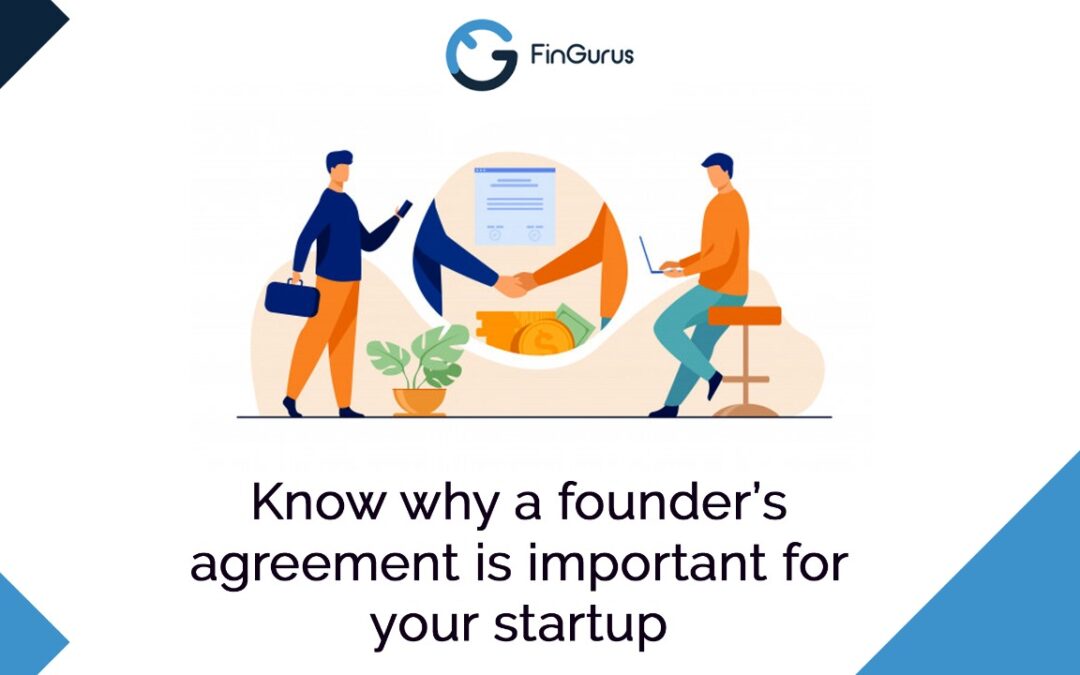Did you just come across a once-in-a-lifetime business idea? And, you are ready to hatch the idea with your partners? You all might also feel that excitement in the air when you think of running your startup?
Before you head any further, take a deep breath and think if you are done with all the paperwork and formalities that need to be in place before starting a business. And, with formalities and paperwork, we mean the legal clauses, as these are the ones that can protect your business in the present and future.
If the plan is to start a business with co-founders, you need to get a founder’s document first. This is a legal document that clearly outlines the roles and responsibilities of all the founders.
Do you want to know how vital a founder’s agreement can be in a startup? Well, for that, you have to delve into the following sections!
What is a Founder’s Agreement?
Before everything, let’s understand what a founder’s agreement is.
A founder’s agreement is a kind of legal binding, wherein aspects such as roles, responsibilities, equity, salary, and compensation of each startup’s founders are written. It can be a partnership agreement or a standalone document or can be integrated into the company bylaws.
By all means, it helps the founders be aware of their roles in the startup.
Now, let’s see why this founder’s agreement is considered so crucial while starting a venture.
Why is a Founder’s Agreement so Important in a Business?
A founder’s agreement serves as a baseline that determines the relationship of the co-founders in a business, what specific role each founder will play, and how the company is expected to grow in their presence.
However, if seen from a different perspective, it’s like you are getting insurance against any unplanned and unexpected issues amid your business co-founders.
Here are some reasons why you should have a founder’s agreement in the first place:
- It specifies what each of the co-founder’s role will be
- It will add clarity to the scenario when a founder wants to enter or exit the startup
- You will know how to resolve issues among your partners
- It signals to your clients and lawmakers that you have a serious business
Moreover, if any change of deals occurs, you can include those in the document and follow the updated clauses.
Some Essential Clauses of a Founder’s Agreement
Now that we know the role a founder’s agreement plays, it’s time to dig deeper and see the things that are included in this legal document.
Name of the founders and the business name
To begin with, you have to put down the names of the founders who are willing to invest their money, skills, and hard work in the venture.
After this, you have to state the name of your business. Though it might be difficult, chances are, this is not the first time you have gathered to decide this issue. And, if you are, well, best of luck!
Role and responsibilities of the founders
No matter how small your venture is, every founder will indeed not play the same role. And, especially, if you have just started it!
So, you have to discuss who will play what role in the business. Though it is a possibility that two founders will want to look into some common things, try to create a thorough list on that to avoid any confusion later on. And, remember, the more specific you can get, the better.
Of course, this is not to abandon the teamwork spirit. In fact, when you have the roles clearly stated, it offers clarity regarding who gets the final say when confusion arises.
Equity Breakdown
Now, breaking down the equity among the co-founders is an important part. Though you will find it more comfortable discussing it among yourselves than writing it in a document, but again, having it clearly written will save you from any misunderstanding later on.
Moreover, it is often not an equal division as it depends on how much expertise, experience, money, resources, etc., a founder is bringing into the startup. So, you need to have these mentioned in the founder’s document.
Vesting Schedule
The vesting schedule is just as important as equity breakdown among the founders. Because if the co-founders get their shares, all at once, can you guarantee that they will not start hitting the snooze button and make you do all the work? Or, what if one of the founders wants to leave? Do they have to surrender the shares, or can they keep them? In case of surrender, how do the other members distribute those shares?
So, these are questions that you need to address in this area. Try to be as specific as possible to prevent any trivial issue affect your set-up in the future.
Further, when you have a market-typical vesting schedule, it will positively impact the investors.
Intellectual Property ownership
Intellectual property is all about the creative ideas that one brings into a business. And, this would include things like recipes, branding or advertising ideas, website planning, etc. So, you can already guess why you need to protect intellectual property.
A person can surely be attached to his ideas or creation, but when you are ready to start a venture, it should be owned by the business. If needed, the founder behind the concept can be given higher equity, but he/ she cannot hold the ideas.
When you have these mentioned in the founder’s agreement, you are cutting out on the part where a founder can claim an idea or a product and sell that to your competitor.
Salary and compensation
The salary and the compensation of the founders can vary on several grounds. Suppose it can be depending upon the time and effort given by the founders, or it can be based upon the proportion of the contributions.
No matter what, you can have it written in the founder’s agreement to prevent any problems later on.
Moreover, you can also go a bit deep and use these documents to clarify how the company money will be used by the founders, which founder can approve debt, to steer clear of any unpleasant surprises.
Exit Rules
Last but not least, a founder’s agreement should also clearly specify the exit rules. It is because a situation may arise where you would want to leave the company. Or what happens to your co-founder when he has been a consistent underperformer?
We understand that these discussions can be awkward, but once you have these placed, it will protect the interest of all the co-founders. So, even though these conversations can be stressful, try to get them done at once and note them down in the founder’s agreement.
Key Takeaway
By now, you know what a founder’s agreement is. And the significance it holds in a startup.
So, if you plan to transform your once-in-a-lifetime idea into a business venture with your friends or others, make sure you have all the aspects cleared out in the founder’s agreement.
And, if you need more information, don’t hesitate to reach out to us at marketing@fingurus.com

